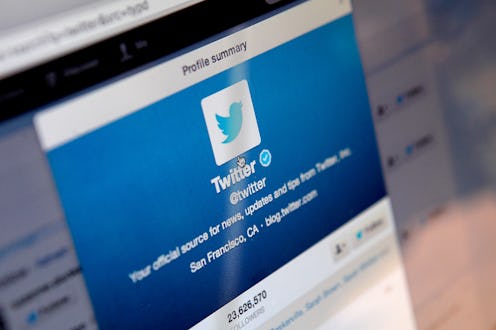Entertainment
Iranians Get Glimpse At Unblocked Social Media
Last night, Iranians found themselves with unfettered access to typically restricted websites, prompting hopeful talk of greater Internet freedom.
And then, after less than a day, the usual firewalls went back up.
According to Iranian state officials, the momentary freedom was a simple technical glitch. Ever since the revolution protesting Mahmoud Ahmadinejad’s 2009 re-election, the Iranian government has blocked Facebook and Twitter — sites revolutionaries have used to coordinate mass protests. State filters also block online porn. And although users can access proxies and VPN to circumvent the firewalls, technically, legal access is unheard of.
Last night’s open portal sparked hopes that the new president, Hassan Rouhani, who succeeded Ahmadinejad last month, would ease up on Internet restrictions. One of Rouhani’s campaign promises was to ease up on social controls, and he’s said before that he doesn’t believe web filtering actually accomplishes much. “In the age of digital revolution, one cannot live or govern in a quarantine,” he told the Iranian magazine Chelcheragh, prior to assuming office.
Iranian officials are even taking to social media themselves: Iran’s oil minister is on Facebook, and the American-educated foreign minister, Mohammad Javad Zarif, interacts with Twitter users through his own (fancy-pants-verified) account. Even Supreme Leader Ayatollah Ali Khamenei has apparently done some social-mediaing of his own. Not surprisingly, none of those officials decided to mention the barrier break on their accounts.
Iran has a history of relaxing social control when popular media gets to be too big for the government’s reach: A ban on video cameras was revoked in the 1990s after they became widely used despite the law banning their use, and citizens have filtered access to Google’s search engine.
Siavush Randjbar-Daemi, a British lecturer on Iran at Manchester University, told Reuters that a partial unblocking of social media might get Rouhani political brownie points. However, any changes to social censorship would need conservative clerics and security officials’ stamps of approval.
This history, along with the more relaxed stance of Rouhani and some of his officials, are leading some to believe that the firewall breakdown is reflective of tension within the Iranian government between new moderates and established hardliners, who see an open internet as potentially threatening.
But Amin Sabeti, a British-based expert on Iranian internet, says it really was a technical glitch that likely caused blocked websites to be accessed. “Iran has invested millions of dollars for its filtering system,” Sabeti told Reuters, adding that the government would be loathe to give it up for the high price it’s paid.
But, you know, there's other theories:
Luckily, Iran’s not blaming the U.S. for the firewall failure (although it’s accused the country of hacking in the past).
After all, this week has even seen a fragile line of direct communication opened between President Obama and Rouhani, after Obama sent the newly-elected Iranian president a letter of congratulations. The move could be seen as an icebreaker in what have been historically broken American-Iranian diplomatic relations following the 1980 U.S. Embassy hostage crisis in Tehran.
Rouhani, for his part, has said he wishes to pursue a “constructive interaction” with the United States, and the re-opening of diplomatic dialogue sparked by Obama’s letter could be a step toward resolving the nuclear dispute — although Rouhani continues to send mixed messages about Iran giving up what he calls its “nuclear rights.”
